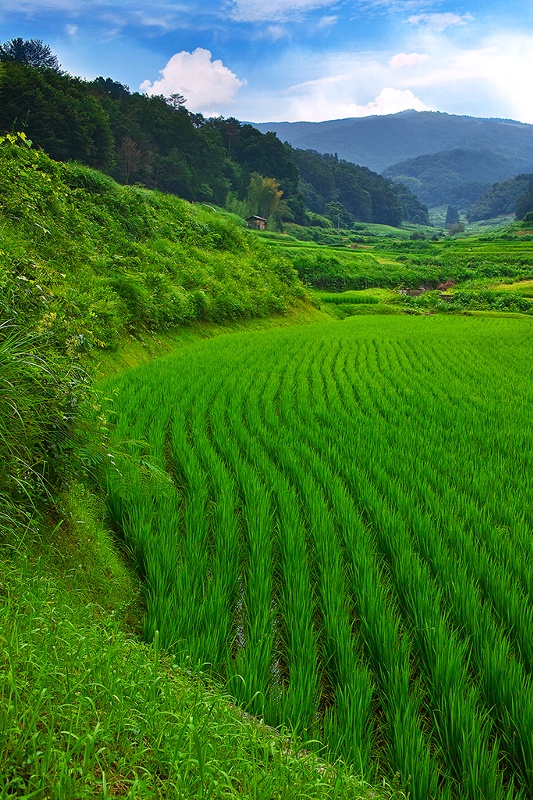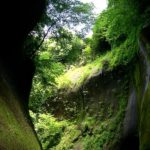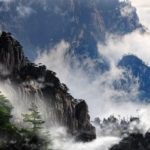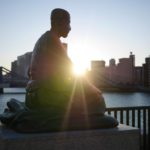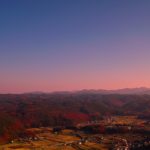Here is the opening part of his most popular travel prose, “Oku no Hosomichi (The Back-country Trails)”. Aesthetic sensitivity here is a little different from other conventional Japanese attitude toward life and beauty.
これが芭蕉の最も有名な俳諧紀行文『奥の細道』の冒頭です。ここに見られる感受性は、人生や美に対する他の伝統的な日本的態度とはやや異なります。
月日は百代の過客にして、行きかふ年もまた旅人なり。舟の上に生涯を浮かべて、馬の口とらえて老いを迎える者は、日々旅にして、旅を栖とす。
The Months and days. They’re on a journey for all eternity. The years that come and go. They’re also wayfarers. Transporters grow old making a living on ships or leading workhorses. They are travelers for ever. They find their homes wherever their travels take them.
月日は永遠の旅人。やって来ては去って行く年も、終わりのない旅を続ける。船頭は舟を、馬方は役馬を引き、齢を重ね、毎日を旅として生き、旅こそが住処となる。
The common attitude toward the fact that life is too short is to regretfully lament over and find sentimental beauty in its frailty or to focus on the present and be determined to make the best of what you have now. Basho, however, jumps into the gushing current of life. He tries to ride the life’s mane, not knowing where the journey takes him.
人生は短いという事実に対して、一般的には、そのはかなさを嘆いたり感傷的な美を見出したり、または、現在に集中して、今あるものを大切にしようと心に誓ったりします。しかし、芭蕉は、どこへ向かうとも知れない人生の激流の只中に身を投じる、人生という馬のたてがみにつかまって行く、そういう生き方を選んだのです。
